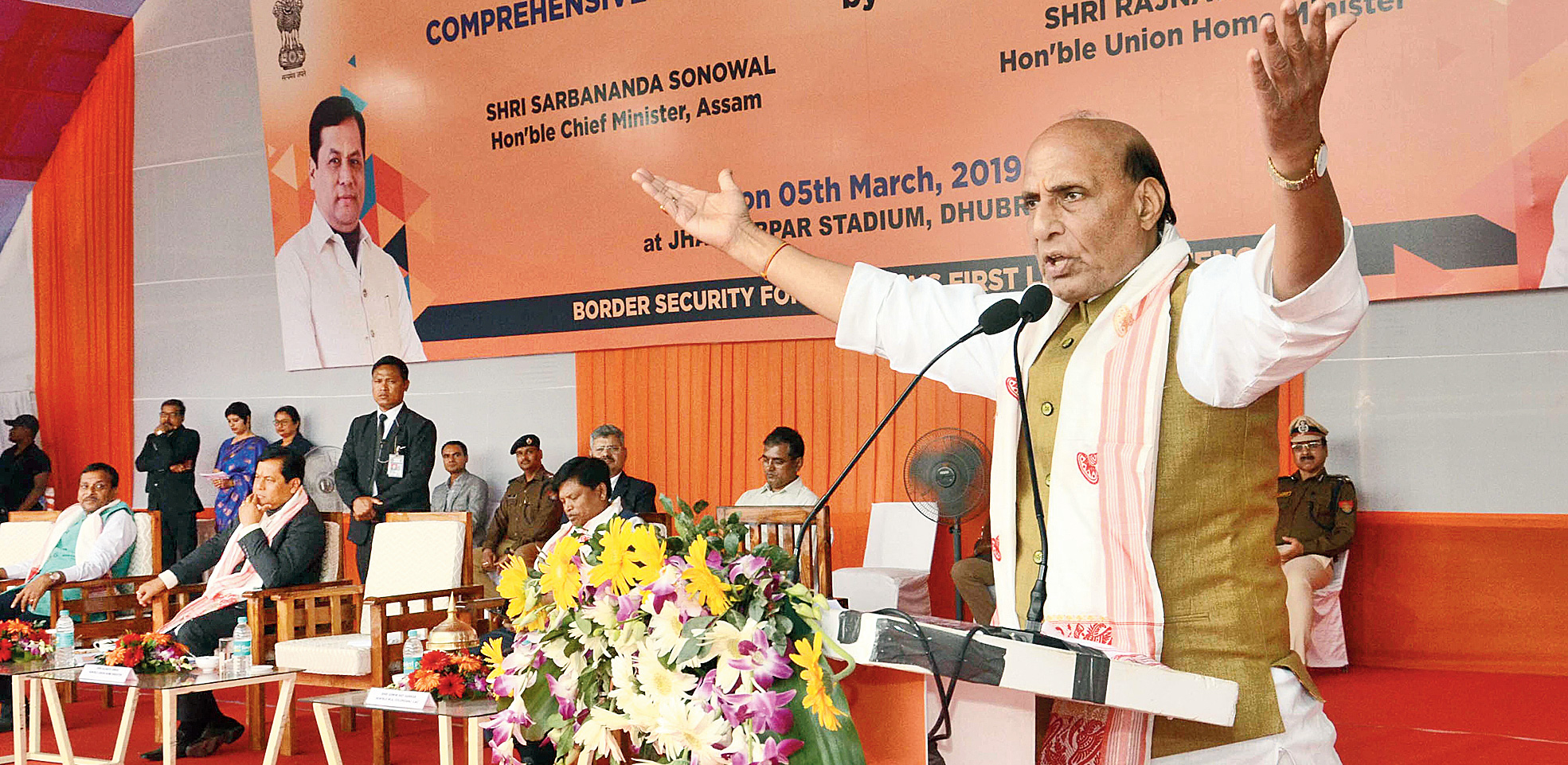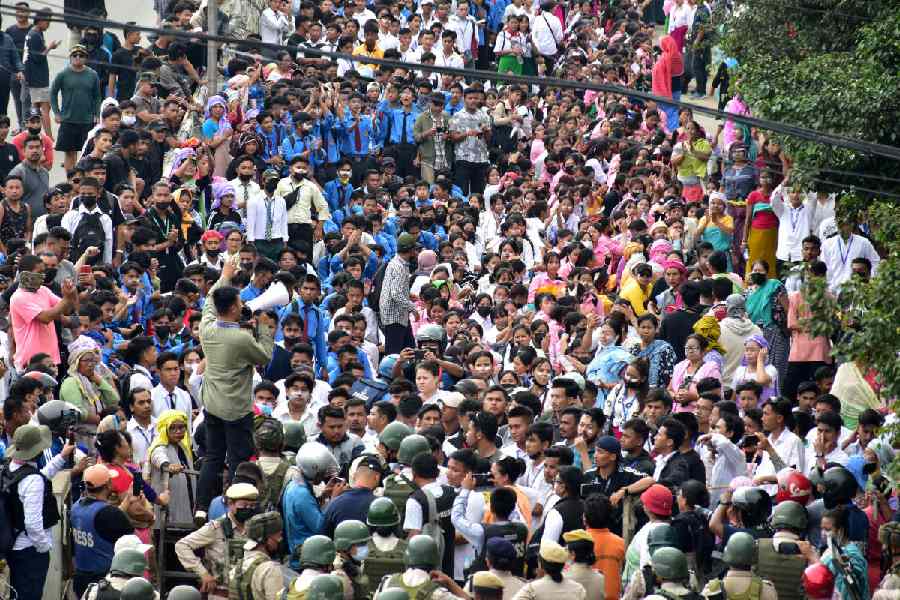Union home minister Rajnath Singh on Tuesday inaugurated an advanced electronic surveillance system to secure India’s unfenced riverine border with Bangladesh in lower Assam’s Dhubri district.
After inaugurating the high-tech project in the presence of chief minister Sarbananda Sonowal, Rajnath said fencing of the India-Bangladesh border in Bengal could not be completed yet because of delay in land acquisition by the Bengal government.
“I had a meeting with the Bengal government on this issue one year ago and they had assured their cooperation but they are yet to give us the land. The delay was on their part,” he said.
Rajnath told reporters that the new project, Border Electronically-Dominated QRT Interception Technique (BOLD-QIT) under the Comprehensive Integrated Border Management System, would equip unfenced areas along the rive-rine border with sensors, enabling troops to take prompt action against intrusion.
BOLD-QIT is a synchronised system, comprising static and moving cameras, underwater remotely operated vehicles, infra-ray intrusion detection system, underwater sensors and unmanned aerial vehicles, among others. It will not only check infiltration but also fake currency, cattle smuggling and other trans-border crimes.
The BSF’s information and technology wing executed the project by taking a cue from Israel.
“It is a very effective system. I had seen it during my visit to Israel. I think it should be installed in the entire length of our international border. If any further improvement is required, we will do it within the next couple of months,” Rajnath said.
The BSF is responsible for safeguarding India’s 4,096km border with Bangladesh, including 263km in Assam.
An official source said, “At some places, it is not possible to erect a border fence due to geographical barriers. The 61km border in Dhubri, where the Brahmaputra enters Bangladesh, comprises vast sar land and innumerable river channels, making border guarding a daunting task, especially during the rainy season. To overcome this problem, in 2017, the Union home ministry decided to go for technological solutions, besides manpower from the BSF. In January 2018, the BSF undertook the project and completed it in record time.
“If the system detects an intruder, it will alert the command, control centre and control rooms and the quick reaction teams of the BSF will rush to the spot,” the source added.
The implementation of this project will provide respite to the troops from round-the-clock human surveillance.











